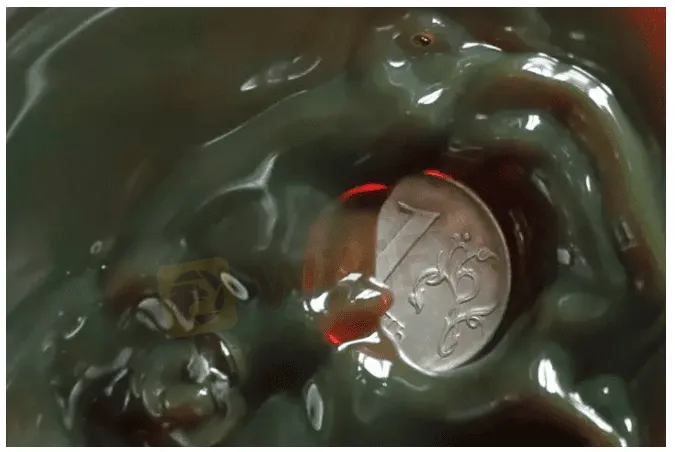简体中文
繁體中文
English
Pусский
日本語
ภาษาไทย
Tiếng Việt
Bahasa Indonesia
Español
हिन्दी
Filippiiniläinen
Français
Deutsch
Português
Türkçe
한국어
العربية
Marketmind: A month of war
Abstract:Its a month since Russian troops stormed into Ukraine, goading the West into an unexpectedly severe sanctions response. Now, a new twist — President Vladimir Putin wants “unfriendly” nations to pay for energy imports in roubles, not euros or dollars.

A look at the day ahead in markets from Sujata Rao
A look at the day ahead in markets from Sujata Rao
And contracts must be switched in a week, Putin has demanded.
The demand carries all kinds of ramifications and its unclear if Western firms, wary of trading Russian assets, will agree. But the announcement promptly sent European gas prices higher. And meanwhile, a Kazakh oil pipeline outage has lifted Brent crude back above $120 a barrel.
It all heaps on the price pressures — JPMorgans latest estimate is for global inflation to hit 6.3% this quarter, the fastest increase in a quarter of a century. And more aggressive central banks — even habitually dovish U.S. policymakers now seem willing to endorse bigger interest rate rises in May.
And of course recession fears are on the rise, as U.S. bond yield curves are signalling.
Graphic: U.S. bond yield curve: https://fingfx.thomsonreuters.com/gfx/mkt/gdpzyjykjvw/US2203.PNG
We will get an idea of the kind of hit to business activity and sentiment are taking from the war as advance readings of March Purchasing Managers Indexes (PMIs) trickle out.
Japanese PMIs show business optimism has notably softened but Europe may fare worse; Wednesday data showed consumer confidence plunging in March to May 2020 lows.
All that and more will be debated at a summit of NATO and European leaders in Brussels, which U.S. President Joe Biden will join. Expect more sanctions against Russia.
Finally, equity trading has resumed in Moscow after a 3-1/2-week shutdown, albeit on a limited basis. And currency traders are awaiting clarity of whether European buyers can swing rouble payments for gas — that possibility lifted the Russian currency 8% on Wednesday.
Graphic: Who buys Russia‘s oil and gas? Who buys Russia’s oil and gas?: https://graphics.reuters.com/GLOBAL-OIL/RUSSIA/myvmnxxolpr/chart.png
Key developments that should provide more direction to markets on Thursday:
-ECB board member Frank Elderson speaks
-Fed speakers: Chicago President Charles Evans, Minneapolis Fed‘s Neel Kashkari, Governor Christopher Waller, Atlanta Fed’s Rafael Bostic
-Switzerland to resist global rate-hike trend
-Norway to raise rates by 25 bps
-U.S. weekly jobless claims/final core PCE/durable goods
-U.S. 10-year TIPS auction
– Mexico to raise rates by 50 bps, South Africa to deliver 25 bps rise

Disclaimer:
The views in this article only represent the author's personal views, and do not constitute investment advice on this platform. This platform does not guarantee the accuracy, completeness and timeliness of the information in the article, and will not be liable for any loss caused by the use of or reliance on the information in the article.
Read more

Good News Malaysia: Ready for 5% GDP Growth in 2025!
Malaysia's economy is on track to sustain its robust growth, with GDP expected to exceed 5% in 2025, according to key government officials. The nation's economic resilience is being driven by strong foreign investments and targeted government initiatives designed to mitigate global economic risks.

Tradu Introduces Tax-Efficient Spread Betting for UK Traders
Tradu’s introduction of tax-efficient spread betting and groundbreaking tools like the Spread Tracker signals a new era of accessible, competitive, and innovative trading solutions for UK investors.

Trading Lessons Inspired by Squid Game
The popular series Squid Game captivated audiences worldwide with its gripping narrative of survival, desperation, and human nature. Beneath the drama lies a wealth of lessons that traders can apply to financial markets. By examining the motivations, behaviours, and strategies displayed in the series, traders can uncover valuable insights to enhance their own approach.

How Far Will the Bond Market Decline?
Recently, the yield on the U.S. 10-year Treasury bond reached a new high since April 2023, soaring to 4.7%.
WikiFX Broker
Latest News
High-Potential Investments: Top 10 Stocks to Watch in 2025
US Dollar Insights: Key FX Trends You Need to Know
Why Is Nvidia Making Headlines Everywhere Today?
Discover How Your Trading Personality Shapes Success
FINRA Charges UBS $1.1 Million for a Decade of False Trade Confirmations
Bitcoin in 2025: The Opportunities and Challenges Ahead
BI Apprehends Japanese Scam Leader in Manila
Big News! UK 30-Year Bond Yields Soar to 25-Year High!
SQUARED FINANCIAL: Your Friend or Foe?
Join the Event & Level Up Your Forex Journey
Currency Calculator






